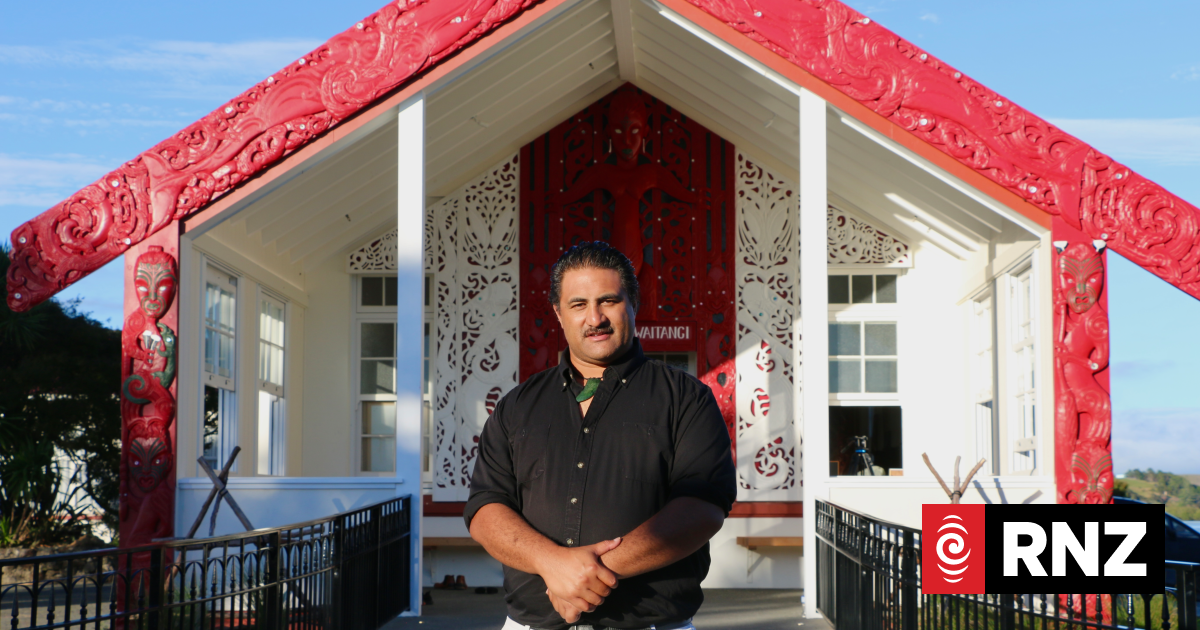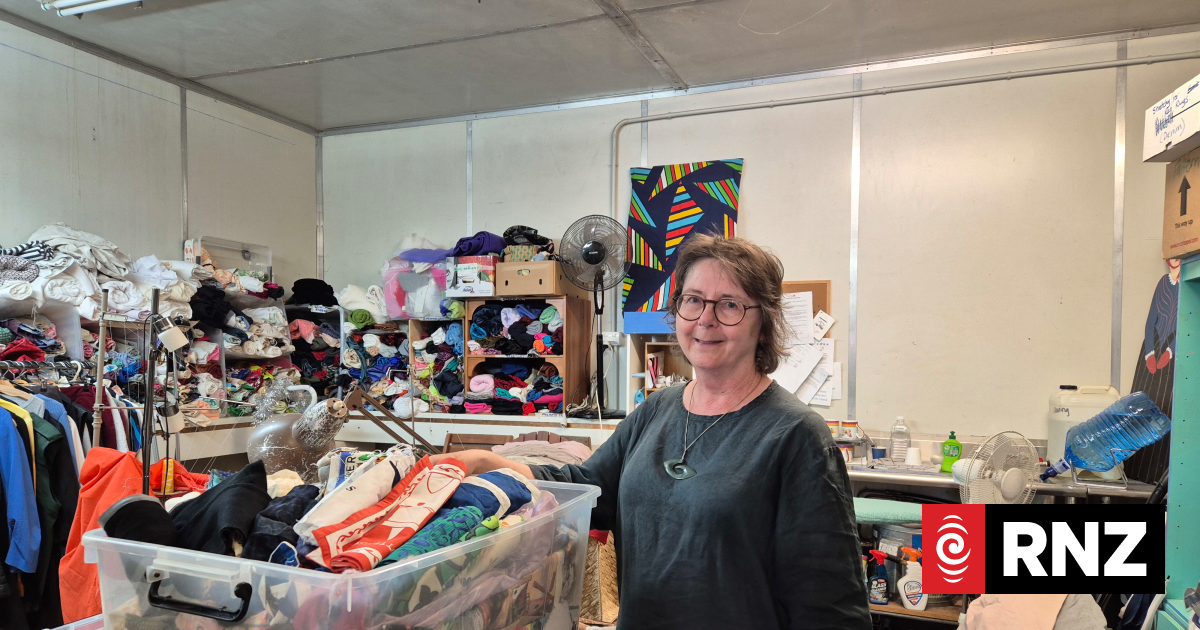Kerikeri resident Lisa Goodhart has run out of her menopause treatment and was told by her doctor it was no longer available. Photo / Jenny Ling
Northland women going through menopause are starting to suffer from a raft of “horrible” symptoms caused by a major shortage of menopause medications.
There has been a shortage of the most commonly used and funded hormone replacement therapy [HRT] treatments in New Zealand since 2020, driven by increased demand and supply chain disruptions due to the Covid pandemic.
But now, Pharmac has recently confirmed supplies of Estradot patches – the most commonly used treatment – had completely run out in the 25, 50 and 75-microgram doses.
The 25 and 50mcg patches will not be available until July, while the 75s are expected in late May.
Advertisement
Some 100mcg stock had just arrived in New Zealand and would be released after quality assurance checks, though no date has been given.
Kerikeri resident Lisa Goodhart has been on Estradot patches for two years after she underwent surgically induced menopause as part of her treatment for endometrial cancer.
Usually, she said, women’s bodies have a gradual drop in hormones, giving them a chance to adjust, but when menopause is surgically induced “you don’t get the opportunity to have that”.
“Instantly, your hormones are super-low overnight.
Advertisement
“I had the whole list of symptoms; unbearable hot flushes and headaches, [it was] impossible to sleep at night, mood swings and brain fog.
“The brain fog was the hardest part. You don’t feel like yourself anymore. It was horrible.”
Goodhart, an equestrian biomechanics coach and Pilates teacher, has now run out of 100mcg patches and was told by her doctor last week that no more were available.
“They couldn’t give a date. It was also the same at the pharmacy – nobody knows.
“It was kind of like, ‘Oh well, what can you do?’.”
“I’ve already noticed [in the] four days since my last patch was removed, I’ve had headaches and the hot flushes are back, though not as severe.
“It’s the brain function for me. Your quality of life considerably changes. How are you supposed to get on with normal life when it’s so horrible?”
/cloudfront-ap-southeast-2.images.arcpublishing.com/nzme/B52GTSGQGBHH5NUC4DC56WPOQM.JPG)
HRT treatments release estrogen into the body, helping to alleviate symptoms like hot flushes, anxiety, mood swings, dizziness, joint and muscle pain and insomnia.
Pharmac said Estradot is on allocation, which means pharmacies are receiving a small amount each week to ensure equitable distribution around the country.
However, some Northlanders, including Kerikeri residents, are being told there are no patches available until July.
Advertisement
Pharmac is advising women to consider alternatives to Estradot, such as an oral pill, but there is a low risk of blood clots that can lead to strokes.
Because of her history of cancer, Goodhart said she can’t have the estrogen pill.
Kerikeri resident Jackie Ashdown ordered her 100mcg Estradot patches online and was told by the pharmacy they were out of stock until July.
Ashdown, a personal trainer, said it was “outrageous”.
Not having the menopause treatment affects her in many ways, including causing brain fog and fatigue, she said.
“It massively affects me cognitively with brain fog and fatigue. It affects my ability to train myself and it affects my work.
Advertisement
“Why are women not treated as important when it can be life-saving stuff?”
Ashdown, who has done extensive research on menopause as part of her work, said many women are “detrimentally affected” without HRT.
“It’s medical misogyny that women’s health is not taken seriously enough to make sure patches are in supply.
“Would they run out of insulin, thyroxine or Viagra?
“There should be a much bigger outcry as to why this is happening – it’s not acceptable.”
/cloudfront-ap-southeast-2.images.arcpublishing.com/nzme/4JIOMXTYRBCRZCX7YLQRBXSFQU.jpg)
Pharmac’s director of operations Lisa Williams said demand for HRT has more than doubled over the past five years in New Zealand, with sharp increases in demand for the patches over the past two years.
Advertisement
Globally, suppliers are reporting “extraordinary increases” at a time when Covid-19 has caused global and local distribution issues.
“Our team continues to work with suppliers and our health sector partners to minimise the impact of supply issues on our communities.
“At this stage, the supplier of Estradot is working on improving the supply outlook for this product.”
When asked why some Northland pharmacies have no stock or timeframe for when it will be available, Williams said: “We understand that stock in pharmacies and wholesalers may differ from what’s shown on our website.”
“We are exploring how we could reduce the impact by looking to see if there are other products we could secure and fund in New Zealand.
“We want to acknowledge the stress this supply issue might be causing some people. We recommend people contact their healthcare practitioner if they have concerns about their health or medicines available to them.”
Advertisement
Broadway Health Kaikohe clinical lead in women’s health Dr Justine Woodcock was getting queries “on a weekly basis from women getting sent back from pharmacies”.
Dr Woodcock was having to tell patients to either go without treatment, get stronger patches and cut them in half, or swap to oral alternatives.
But the “most ideal formulation” was having estrogen in a patch, which had “smoother drug absorption and is better for women”, she said.
“We’re really struggling to get any supplies for our patients who want to be on HRT.
“If it’s going to be a long-term shortage, that’s not an ideal situation.”
Dr Woodcock said two menopause documentaries by Davina McCall that screened in New Zealand last December had prompted the increase in demand for HRT, along with “the population of our of women becoming more educated about menopause and symptoms”.
Advertisement
“Women are more aware of what’s available to help them and are much keener to go on HRT as they are finding out the benefits.
“Our problem is, we want to prescribe it and we can’t access it.”



